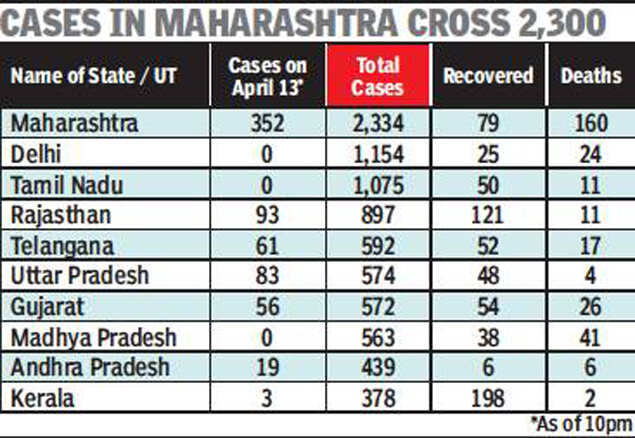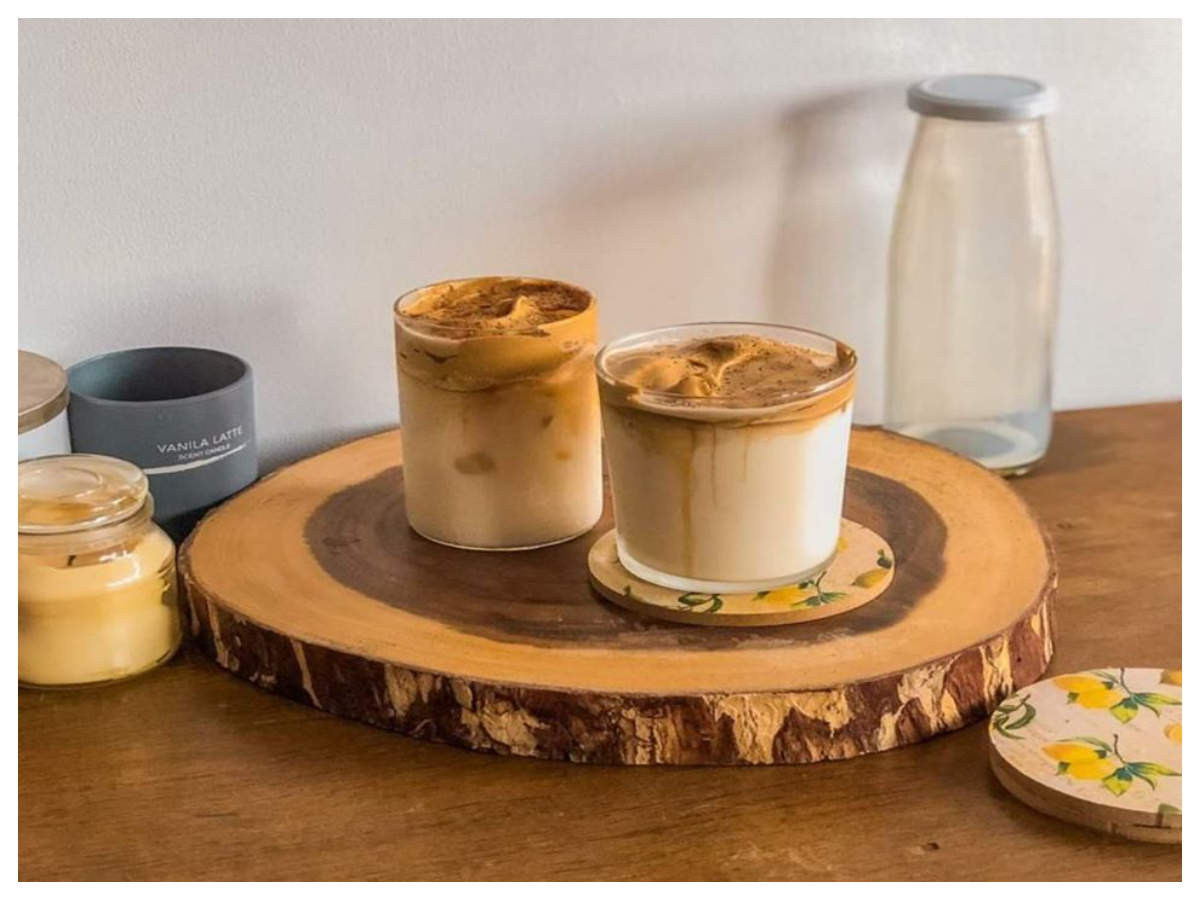
THIRUVANANTHAPURAM: As many as 22 persons who returned to the state from abroad tested positive for Covid-19 in Kerala after April 5, their incubation period ranging from 14 to 26 days, which vindicates Kerala’s decision to disregard the WHO-mandated 14-day quarantine norm and extend it to 28 days. International flights to Kerala stopped on March 22 and April 5 was the cut-off date for the 14-day quarantine.
With cases testing positive even after 26 days, it also raises questions on whether the nationwide 21-day lockdown, set to end tonight, is sufficient to contain the virus’ spread.

A 40-year-old from Kannur, who returned from Dubai via Air India Express IX 346 on March 17, tested positive for Covid-19 on Sunday, 26 days later. A 11-year old boy who reached Kannur from the UAE on March 15, tested positive on the 24th day, on April 8. Of the cases reported on Monday, a Palakkad native had reached the state on March 22 and tested positive on the 23rd day.
The development of symptoms after 14 days poses a huge challenge for the state as non-resident Keralites are expected to return once the travel options are available. The state has already announced that it will bear the expenses of testing and quarantine of the returning NRKs.
Kerala had by the first week of March decided to extend the quarantine period to 28 days while it is 14 days in the rest of the country. In the case of the 22 persons with lengthier incubation periods, had they followed a 14-day quarantine period they would have ended up infecting more people even after completing their quarantine. The state’s decision to extend quarantine to 28 days, initially seen as an overreaction, has been borne out. Interestingly, WHO has not upgraded its quarantine period from 14 days so far.
However, senior officials of community medicine under the health department said it was too early to finalise the incubation period of the novel coronavirus.
Case-to-case study needed
Prolonged period of infection and asymptomatic nature for around 20% of infected persons are a major challenge. A case-to-case study has to be done to confirm the incubation period,” one of them said.
A recent study published by Xue Jiang, Yawei Niu, Xiong Li, et al on website www.medrxiv.org, which checked if a 14-day quarantine period was optimal for effective control of Covid-19, found that the full range of incubation period ranged from 0 to 33 days among the 2,015 cases it observed. According to it, the incubation period in 233 cases (11.6%) was longer than the WHO-established quarantine period (14 days).
State nodal officer of public health emergency Dr Amar Fettle said the state had decided to stick to a 28-day quarantine considering that the disease was new and studies were still in progress. Dinesh Arora, Ayushman Bharat’s former deputy CEO and state mission director of national health mission, said the state seemed to have taken the right decision by introducing a 28-day quarantine. “Things are evolving on a daily basis. We do not have hard evidence on the incubation period. Let's err on the side of caution rather than be caught unawares,” he said.
Meanwhile, another study by Stephen A. Lauer, Kyra H. Grantz, Qifang Bi et al (on website https://annals.org) found that only 101 in 10,000 cases developed symptoms after the end of a 14-day monitoring period and any extension is required only for high-risk cases.
With cases testing positive even after 26 days, it also raises questions on whether the nationwide 21-day lockdown, set to end tonight, is sufficient to contain the virus’ spread.

A 40-year-old from Kannur, who returned from Dubai via Air India Express IX 346 on March 17, tested positive for Covid-19 on Sunday, 26 days later. A 11-year old boy who reached Kannur from the UAE on March 15, tested positive on the 24th day, on April 8. Of the cases reported on Monday, a Palakkad native had reached the state on March 22 and tested positive on the 23rd day.
The development of symptoms after 14 days poses a huge challenge for the state as non-resident Keralites are expected to return once the travel options are available. The state has already announced that it will bear the expenses of testing and quarantine of the returning NRKs.
Kerala had by the first week of March decided to extend the quarantine period to 28 days while it is 14 days in the rest of the country. In the case of the 22 persons with lengthier incubation periods, had they followed a 14-day quarantine period they would have ended up infecting more people even after completing their quarantine. The state’s decision to extend quarantine to 28 days, initially seen as an overreaction, has been borne out. Interestingly, WHO has not upgraded its quarantine period from 14 days so far.
However, senior officials of community medicine under the health department said it was too early to finalise the incubation period of the novel coronavirus.
Case-to-case study needed
Prolonged period of infection and asymptomatic nature for around 20% of infected persons are a major challenge. A case-to-case study has to be done to confirm the incubation period,” one of them said.
A recent study published by Xue Jiang, Yawei Niu, Xiong Li, et al on website www.medrxiv.org, which checked if a 14-day quarantine period was optimal for effective control of Covid-19, found that the full range of incubation period ranged from 0 to 33 days among the 2,015 cases it observed. According to it, the incubation period in 233 cases (11.6%) was longer than the WHO-established quarantine period (14 days).
State nodal officer of public health emergency Dr Amar Fettle said the state had decided to stick to a 28-day quarantine considering that the disease was new and studies were still in progress. Dinesh Arora, Ayushman Bharat’s former deputy CEO and state mission director of national health mission, said the state seemed to have taken the right decision by introducing a 28-day quarantine. “Things are evolving on a daily basis. We do not have hard evidence on the incubation period. Let's err on the side of caution rather than be caught unawares,” he said.
Meanwhile, another study by Stephen A. Lauer, Kyra H. Grantz, Qifang Bi et al (on website https://annals.org) found that only 101 in 10,000 cases developed symptoms after the end of a 14-day monitoring period and any extension is required only for high-risk cases.

Coronavirus outbreak
Trending Topics
LATEST VIDEOS
City
 Muslims help perform last rites of a Hindu woman in Indore
Muslims help perform last rites of a Hindu woman in Indore  Madhya Pradesh: COVID-19 survivor forced to put house on sale due to inhuman behaviour of neighbours
Madhya Pradesh: COVID-19 survivor forced to put house on sale due to inhuman behaviour of neighbours  PM Narendra Modi to address the nation on Tuesday at 10am
PM Narendra Modi to address the nation on Tuesday at 10am  COVID-19: Maharashtra minister Jitendra Awhad tests negative, home-quarantines himself
COVID-19: Maharashtra minister Jitendra Awhad tests negative, home-quarantines himself
More from TOI
Navbharat Times
Featured Today in Travel
Quick Links
Kerala Coronavirus Helpline NumberHaryana Coronavirus Helpline NumberUP Coronavirus Helpline NumberBareilly NewsBhopal NewsCoronavirus in DelhiCoronavirus in HyderabadCoronavirus in IndiaCoronavirus symptomsCoronavirusRajasthan Coronavirus Helpline NumberAditya ThackerayShiv SenaFire in MumbaiAP Coronavirus Helpline NumberArvind KejriwalJammu Kashmir Coronavirus Helpline NumberSrinagar encounter
Get the app



